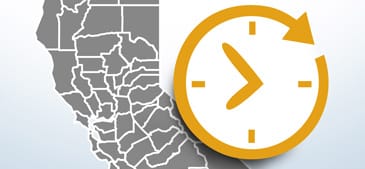Getting Started
Record Levels, Types, and Formats to consider
A person’s unofficial and official recorded presence changes over time. Genealogical records can be personal, familial, business, municipal, county, state, federal, or international.
Information about a person can come in many formats, including written (books, directories, letters, newspapers, books, blogs), audio (oral histories, movies, interviews), visual (photographs, home movies, artwork), or even inanimate objects, such as heirlooms and keepsakes (jewelry, trophies, awards, etc.).
Types of Records
- Address books
- Bibles or other Family Books
- Business and Professional Licenses
- Cemeteries, Burials, and Cremations
- Census
- Church Membership
- City and Telephone Directories
- Court and Legal (Civil and Criminal)
- Education (K-12; University)
- Employment, Financial, and Business
- Family Reunions
- Health, Hospital, and Insurance
- Heirlooms, Keepsakes and Personal Mementos
- Identification or Membership Cards
- Immigration and Passenger Lists
- International Agencies
- Land and Mining Deeds and Maps
- Local Histories
- Military Service
- Naturalization
- Newspapers
- Passports and Travel
- Pension and Pension Applications
- Photographs
- Probates and Wills
- Social and Professional Associations
- Tax and Assessor
- Vital Records (Birth, Marriage, Divorce, Death)
- Voter Registration
- Yearbooks
Genealogy Tips & Strategies
If you are a beginner, advanced, or seasoned researcher, here are a few tips for researching your own family history.
Organize what you already know:
- Genealogy is based on putting a person in a certain place at a certain point in time. Write down everything you know about the ancestors you are researching (names, dates, places, for births, marriages, deaths, as well as occupations).
- Construct a timeline based on the dates and places you know for certain. This shows where your time/place gaps are.
- Write down a few specific details you want to know, but always focus on one detail or question at a time.
Look for what you want to know:
- Start with general search websites to see if anyone else has already started researching your family tree. (Visit search websites periodically as new information comes online frequently.)
- Consult a Record Selection Table if you are uncertain where to look for specific information.
- Remember that spelling changes over time as do place names. Be open to phonetic possibilities and cast a wide net. If the name is close and the age and place are right, make a note of that person and that record.
- Bookmark useful sites on your web browser (sometimes there are great sites hidden within sites).
- Take good notes and keep files organized (document where you’ve looked for each detail).
- Genealogical research without source citations (where you found something) is considered hearsay. Document your sources.
- Remember: Not everything you find online is accurate or complete. You may need to look at several records to help determine what information is most likely accurate.
Ask for help:
- Visit the California State Library or use our Ask a Librarian service for assistance.
- Visit your local library to get a library card and ask the Reference Librarian for help. Librarians are familiar with digital and hard copy resources and can access interlibrary loan features for items not held locally.
- Learn how to use Finding Aids – library and online tools that help you find items which are not catalogued individually.
Record Selection Tables
Record Selection Tables are very helpful if you know the location of your family, but are missing certain details.
These tables list types of resources where you might locate a certain fact or detail. Military record selection tables are unique because military records contain different types of information depending on when and why they were created.




